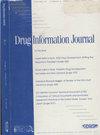The Global Core Clinical Protocol and its Rational Adaptations
引用次数: 1
Abstract
The trend towards worldwide and almost simultaneous clinical development of a new drug has created the need for intense coordination of clinical protocol design among groups. Goals of global clinical research activities are to obtain economies of scale in bringing the new drugs to the populations in need quickly and to avoid national drug lags. Thus, clinical activities of this nature aim to rapidly build afire of broadbased data from comparable studies. This will, hopefully, enable data from several countries to be submitted for registration purposes in each, and to detect regional diyferences in dosage, efficacy and safety early, i f any, However, to arrive at such a uniform output in a fast and flexible manner requires strong consistency in protocols, beyond what may be globally feasible under current operating conditions. National studies may need to cater to honest differences of opinion or experience, particularly of national leaders, or may need to be geared to provide the locally obtained evidence, necessary for national registration or qualification for reimbursement. Also, diyferent drugs or dosage regimens may need to be considered as standards and the acceptability of the inclusion of placebo may be questioned because of local ethical or scientific standards. Such adaptations have to be made with speed and flexibility, while maintaining a central system for data storage and analysis. The various relationships of protocols for a core global program with their national adaptations and deviations from global plan that do not affect objections, design, intervention or success/failure criteria, and that are deemed necessary to adapt a master plan to local needs are presented. The options for centralized v decentralized type management for such a program are discussed.全球核心临床方案及其合理调整
在全世界范围内几乎同时进行新药临床开发的趋势已经产生了在小组之间进行临床方案设计的强烈协调的需要。全球临床研究活动的目标是获得规模经济,将新药迅速提供给有需要的人群,并避免国家药物滞后。因此,这种性质的临床活动旨在从可比研究中迅速建立大量基础广泛的数据。希望这将使来自几个国家的数据能够提交给每个国家进行注册,并尽早发现剂量、功效和安全性方面的区域差异(如果有的话)。然而,要以快速和灵活的方式达成这种统一的产出,就需要议定书具有很强的一致性,这超出了在当前操作条件下全球可行的范围。国家研究可能需要迎合意见或经验的诚实差异,特别是国家领导人的不同意见或经验,或者可能需要提供当地获得的证据,这是国家注册或获得偿还资格所必需的。此外,可能需要考虑不同的药物或剂量方案作为标准,并且由于当地的伦理或科学标准,安慰剂的可接受性可能受到质疑。这种调整必须快速而灵活地进行,同时维护一个用于数据存储和分析的中央系统。提出了核心全球计划的协议与其国家适应和偏离全球计划的各种关系,这些关系不影响反对意见、设计、干预或成功/失败标准,并且被认为是使总体规划适应当地需求所必需的。讨论了这种程序的集中式和分散式类型管理的选项。
本文章由计算机程序翻译,如有差异,请以英文原文为准。
求助全文
约1分钟内获得全文
求助全文

 求助内容:
求助内容: 应助结果提醒方式:
应助结果提醒方式:


